#vulgate merlin
Text
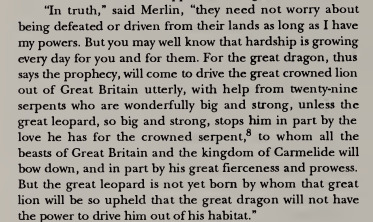

I feel like you can do something really cool with this imagery.
"The Crowned Serpent of Logres" sounds like a really cool title. And there's some interesting heraldry to go with it.
#vulgate merlin#arthuriana#arthurian legend#arthurian mythology#arthurian legends#king arthur#queen guinevere#sir lancelot#sir galehaut#merlin
11 notes
·
View notes
Text
Young Merlin: King Vortigern, you should have kept Constance's kids in your care and should have been a proper regeant to them. Instead you choose to be a coward when you refused the people to make you their king.
Vortigern: oof
2 notes
·
View notes
Text
Really love that Arthur is the Once and Future King because we imortalize him. We keep bringing him back through our stories.
#just storytelling as a path to imortality#arthur pendragon#arthuriana#arthurian legend#arthurian literature#vulgate cycle#le morte d'arthur#post-vulgate cycle#heather dale#bbc merlin#camelot musical#there are so many modern arthuriana stories i cannot possibly list them all#monty pyton and the holy grail#avalon#the once and future king#the pendragon cycle#arthurian saga#mine
327 notes
·
View notes
Note
Hi! Your flowchart is amazing, and I'm so excited by the literature list you made. However, I was wondering if you know which book is best to start reading more about Arthurian legend? I have only collected knowledge through osmosis, so I have no clue where or how to start learning more. Thank you for your time and have a nice day!
hello!
thank you, i'm glad they're helpful for you! i did answer a similar ask about what medieval texts to begin with here and link to free resources, but the formatting is hard on the eyes, and now that my own collection is available, i'll reiterate. all suggested translations are available on my blog.
le morte d'arthur by sir thomas malory: you'll get the most mileage out of this book as malory sourced a broad spectrum of stories to incorporate them into a single text, which includes arthur's conception, pulling the sword from the stone, receiving excalibur from the lady of the lake, marrying to guinevere, young gawain's knighting and first quest, tristan and isolde's romance, the grail quest, final battle at camlann etc. plus malory himself invented some of the most iconic stories, such as gareth's time as the kitchen boy, beaumains. with this book alone, the majority of retellings will make sense to you. but be warned it can be extremely dry (and confusing timeline wise, calogrenant dies twice bc malory couldn't keep his own story straight!), i recommend the keith baines translation as it's rewritten into prose like a novel.
the vulgate cycle: it's 10 books. i know it's 10 books. but it's simply the best. the truncated nature of malory's le morte d'arthur leaves the majority of characters reduced to singular traits (orkney bros the mindless killers, priggish grail knights etc.) which has negatively influenced many retellings since imo. this is not an issue with the vulgate where everyone has a little more nuance and depth, even the bad guys, but especially the characters we're supposed to root for like lancelot and gawain. many fun characters who were cut from le morte d'arthur are fully developed here like half-giant galehaut and gawain's baby mama the lady of lys. i'm putting it high on the list bc i simply think more people should try it. i recommend the translation edited by norris j. lacy. he's incredible and i love all of his translation work. footnotes right in the margin will remind the reader of past references and explain language subtleties lost in translation (like puns) or indicate what was changed for ease of understanding (sometimes the scribes made mistakes and named the wrong character, which lacy will fix and then note he fixed). so if one can get past the sheer volume of text, it's a wonderful read, and i even have specific stories within it i could recommend. but i digress...
sir gawain and the green knight: it goes without saying this poem is iconic. the pearl poet (as the anonymous author is called) wrote beautifully and the version of gawain here is a much kinder portrayal than what he appears in the post vulgate, which was a major source for malory's le morte d'arthur. the beheading exchange/game is the focus here, although this motif will appear in many other texts, such as perlesvaus, and the sgatgk story appears in the majority of retellings that include gawain, so it's a must read. i recommend the j. r. r. tolkien translation (the audiobook version of this translation is phenomenal, like music).
four arthurian romances + the story of the grail by chrétien de troyes: except you can skip cligés bc its mediocre at best. really what you'll need from this is knight of the cart (the first ever story in which lancelot appears and he's very pathetic and weepy and insane and lovable haters dni), knight with the lion (gawain's cousin yvain gets a pet lion, fights a dragon, gets married, gets divorced, goes mad, recovers, gets married again...), erec and enide (worst husband in the universe), and the story of the grail (perceval and gawain adventures). a version of these stories were adapted into le morte d'arthur and the vulgate (except for yvain's lion which is a bummer!). i recommend the nigel bryant translation of perceval and william kibler translations for the rest. when you reach the end of the story of the grail and it cuts mid-sentence...well, sadly we don't know what happened to poor chrétien that kept him from completing his story. but there are four continuations written by other people, plus the german parzival is great as well (and has one of my favorite of gawain's wives, the haughty maiden of logres, orgeluse).
the mabinogion: some of the same stories as chrétien but of welsh origin plus extras. haters will try to pit two bad bitches against each other, but these texts go hand in hand. i like the whimsical vibes of this version and the magical powers given to the characters, such as kay's ability to grow to the size of a tree and set things on fire with his hands or bedwyr's ability to strike faster than all other knights despite having only one hand. it also gives owain (welsh version of yvain) an army of ravens that kill people in addition to his lion, arthur has an invisibility mantle (also referenced in the welsh triads), and the whole gang fights the demon boar twrch trwyth to steal the golden comb off his head. good stuff. i recommend the translation by lady charlotte guest.
the wedding of sir gawain and dame ragnelle: obviously this has to be included. i'm biased but at the same time, it is supposed that sir thomas malory actually wrote this poem! which i think is pretty neat. additionally, 99% of retellings include ragnelle as gawain's wife. in fact, excluding the ones in which he doesn't have a partner at all, i can only think of one in which he marries someone else. dame ragnelle is the people's darling, all of us arthurian authors agreed that in spite of our differing opinions about everything else in the stories, she is the wife of all time. and we're right. a thing of beauty. this text does not have a translation, it's just in middle english, which can be challenging to read. this version edited by thomas hahn has footnotes to help or otherwise i recommend the version retold by selina hastings and illustrated by juan wijngaard, it's gorgeous, and includes all the fun supporting cast like kay and guinevere.
this was a long list with probably more explanation than necessary but it can be difficult to narrow down a single place to begin with arthuriana as each story builds on the literary tradition that came before. everyone is sharing and influencing one another so stories and motifs are repeated, each author writes for their time, slightly altering the technology and culture to reflect their own lived experience, so the narrative evolved as the centuries passed into what we have today. thanks for this ask and hope you enjoy reading!
#arthurian legend#arthurian legends#arthuriana#king arthur#queen guinevere#merlin#sir lancelot#sir gawain#le morte d'arthur#sir thomas malory#the vulgate cycle#the post vulgate#vulgate#post vulgate#sir gawain and the green knight#sgatgk#chretien de troyes#chrétien de troyes#the mabinogion#the wedding of sir gawain and dame ragnelle#reading recommendations#book reccomendations#book reccs#ask#ooutruneverything#arthurian preservation project#my post
34 notes
·
View notes
Text
do BBC Merlin fans even know the story of Sir Galehault the half giant? the most under-appreciated Arthurian tragedy? literally Lancelot’s gay little adventure before he falls in love with Guinevere? with themes of love and loyalty and sacrifice? bc i feel like y’all would like it
#i know the overlap between fans of bbc merlin and fans of various arthurian legend is smaller than you would think#HOWEVER this one stands alone and sorry but Galehault is my favorite of the legendary characters#its not a very happy ending for galehault tho spoiler alert (for a 13th century tale lmfao) he gives up lancelot to guinevere and then#dies of heartbreak so like.#BUT its a great tragedy if you like being sad which i know bbc merlin fans do 😌#its from the vulgate cycle or the lancelot grail cycle whatever u want to call it#i know theres a full french version on the internet archive but idk where u would find a translation maybe check a library#merlin#bbc merlin#mine#arthurian legend#galehault
20 notes
·
View notes
Text
I do know that if I were the winner and ought to cut off his head, I should not be able to kill him for all the world, because I think he is too noble. Moreover, he is the man, out of all those in the world that have meant anything to me, that I have most loved, and still do

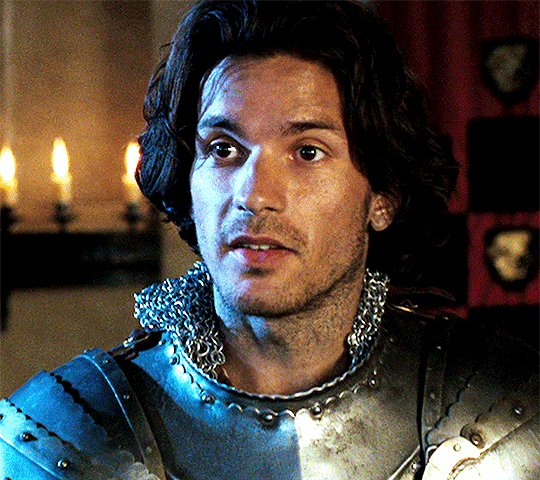
–Lancelot about the fight with Gawain —Vulgate
3 notes
·
View notes
Text
yes lancelot might have been the bravest and most noble of them all but he was also a coward
#must sort my thoughts on this#he was insecure so he kept running away#or something#bbc merlin#the virgin bbc lancelot vs the chad vulgate lancelot#sir lancelot
9 notes
·
View notes
Text
I gotta just scan all of the vulgate already but in my defense it kinda blows
#txt#truly believe no one should have to read the prose merlin ever it sucks so fucking baaaaad#everyone should read the post vulgate instead. ok. lets all gather round and read the post. I love the post.#the galehaut section of thr vulgate + the post is the best bits yaaay
4 notes
·
View notes
Text
One difference between the series and lore is that in the Vulgate Merlin, due to his visions, Merlin had seen his own death by Nimue's hands, and did not even try to fight it. He just kept on teaching Nimue his secrets, cause he knew that nothing he did would change the truth of his visions. But this is what I love about bbc's Merlin. Because where would any of us be, if he did not kill and bleed and cry for a man destined to die, like it was the only choice worth considering? If he had accepted his fate like that, we'd be poorer by five seasons of desperate battling and failure of a little gay sorcerer against a fate that's bigger than him.
110 notes
·
View notes
Text
Hey, do you guys want to hear a story? Let me tell you about the romance between Lancelot and Guinevere, as recounted in Sir Thomas Malory's Le Morte d'Arthur.
So, I thought I knew the basics. I grew up reading modern versions of Arthurian legend that focused on other aspects, but had a general knowledge of the Arthur-Guinever-Lancelot love triangle. It didn't show up too much, but I assumed it was subtext in some other versions. What I picked up was that it was sort of pure, almost an ot3, and not the cause of a lot of problems.
My friends. In this version it is NOT SUBTEXT, it DEFINITELY CAUSED PROBLEMS, and it is WILD. It is a true will-they-won't-they drama fest soap opera romance, and I need to share. So please, come on this journey with me.
[I’m looking at you, Black Sails fandom people. I need you to know that Flint canonically would have read this. He would almost certainly have also grown up hearing these stories. I’m not saying he’s Lancelot coded, but I am saying it's interesting that he would have been aware that was something it was possible to be.]
A couple notes, before we dive in. I am very much just summarizing what happened in the book. The thing is, the book is a million pages long and also in Middle English, and this is just one of many plots, which I think is why it's not more widely known. I will show some excerpts so you can get a feel for the text, but you don’t need to read them to understand the story. I'm referring to a version that is as close to the manuscript as I can find, though with spelling regularized. For real fun, see what the original looked like. Malory purports to be translating part of the French Vulgate cycle, which likely is where the character of Lancelot originates, but in fact he is doing much more than translating, and compiles other stories as well. Point being, when he says “so the French book sayeth” etc, that is the “book” to which he is referring. Because of my lack of knowledge about the language and cultural context, this lecture series from Mythgard Academy was absolutely invaluable to my understanding. I cannot recommend it highly enough. Inevitably, some of the opinions of the prof are reflected here. I do not have it in me to compare the scholarship of various medievalists right now, I just want to tell you about this DRAMA.
Let’s start with a prophecy. When Arthur decides he wishes to marry Guinevere, Merlin advises him to take someone else, because if he takes her, she will betray him with Lancelot and it will destroy his kingdom. All of this is foretold, not only to us, but to Arthur himself. Of course he takes her anyway, and all is doomed from the start.
As we begin the main arc of this story (several books after the prophecy), Lancelot is widely acknowledged to be the best and most renowned knight of Arthur’s court. He is plainly and hopelessly in love with Guinevere, and she loves him in return. Arthur doesn’t have a problem with this - who wouldn’t love Guinevere? This sort of love is socially acceptable, so long as they do not sleep together, which would be treason. Arthur in fact seems to support their love, because it means that Lancelot will be Guinevere’s champion should she need one. This is a role Arthur himself legally cannot fill because he is the king, and so would have to be the judge. Lancelot is indeed a good champion for her, and fights for her when she is wrongly accused of murder.
Lancelot is deeply chivalrous, in a way that seems sincere. This is a great place for a first excerpt, a conversation with a Random Damsel Lancelot has been helping:
‘Now, damosel,’ said Sir Lancelot, ‘will ye any more service of me?’ ‘Nay, sir,’ she said, ‘at this time, but almighty Jesu preserve you wheresoever ye ride or go, for the most courteous knight thou art and meekest unto all ladies and gentlewomen that now liveth. But one thing, sir knight, me thinks ye lack, ye that are a knight wifeless, that ye will not love some maiden or gentlewoman. For I could never hear say that ever ye loved any of no manner of degree, and that is great pity. But it is noised that ye love Queen Guenivere, and that she hath ordained by enchantment that ye shall never love no other but her, nor no other damosel nor lady shall rejoice you; wherefore there be many in this land of high estate and low that make great sorrow.’ ‘Fair damosel,’ said Sir Lancelot, ‘I may not warn* people to speak of me what it pleaseth them; but for to be a wedded man, I think it not; for then I must couch with her, and leave arms and tournaments, battles and adventures. And as for to say to take my pleasance with paramours, that will I refuse, in principal for dread of God. For knights that be adventurous should not be adulterers nor lecherous, for then they be not happy nor fortunate unto the wars; for either they shall be overcome with a simpler knight than they be themselves, or else they shall slay by unhap and their cursedness better men than they be themselves. And so who that useth paramours shall be unhappy, and all thing unhappy that is about them.’
So after doing his Knightly Deeds for this damsel, Lancelot asks if she needs anything else. She says no, but you are lacking one thing, which is the love of a woman. It is rumored that is because Guinevere has through sorcery made you love only her, and that causes all of the women great sorrow. In reply Lancelot makes this speech about how he cannot have a wife or paramour and be a good knight, but everyone thinks it is at least in part because his love is reserved for Guinevere.
Now, throughout the book his chastity DOES notably cause all of the women great sorrow. Everyone wants to sleep with Lancelot. Literally he is kidnapped by the four most beautiful queens other than Guinevere, and they say he has to choose one of them as a lover (not even a wife, a lover) or else die. He says he would rather die, though in the end he escapes. This is just an example, truly it is a recurring problem for him. He is, at one point, tricked into sleeping with a woman with whom he conceives his son Galahad (as was prophesied, it's a long story and the romance is only part of it. It is worth mentioning that something similar happens to Arthur, which is how Mordred is sired.) When Guinevere learns that Lancelot has been with someone else, she is angry and banishes him from the court. They still love each other and eventually reconcile.
So, Lancelot goes on the quest for the holy grail. But he fails, specifically because while he is outwardly dedicated to God, in his private heart he is still dedicated to Guinevere. And so he makes a vow to renounce his love for her, acknowledging that it is beyond measure (beyond what is right, even if they have not technically done anything wrong.) However when he returns to Camelot, he cannot keep this vow, as we see.
Then, as the book saith, Sir Lancelot began to resort unto Queen Guenivere again, and forgot the promise and the perfection that he made in the quest. For, as the book saith, had not Sir Lancelot been in his privy thoughts and in his mind so set inwardly to the Queen as he was in seeming outward to God, there had no knight passed him in the quest of the Sangrail, but ever his thoughts were privily on the Queen. And so they loved together more hotter than they did beforehand, and had many such privy draughts together that many in the court spoke of it, and in especial Sir Agravain, Sir Gawain’s brother, for he was ever open-mouthed. So it befell that Sir Lancelot had many resorts of ladies and damosels that daily resorted unto him to be their champion: in all such matters of right Sir Lancelot applied him daily to do for the pleasure of Our Lord Jesu Christ. And ever as much as he might he withdrew him from the company of Queen Guenivere for to eschew the slander and noise, wherefore the Queen waxed wroth with Sir Lancelot.
He and Guinevere start spending a lot of time alone together, and so there are rumors circulating about them in court. In order to put a stop to the rumors, Lancelot starts paying other women attention and doing more good knightly deeds for them. Guinevere is terribly jealous, but he tells her it's for their own good, and also tells her about the vow he made, and his concern that their love is beyond what is appropriate. She is devastated, and weeping banishes him from the court (again).
Lancelot then rides in a tournament, disguised. (Why? Because this is simply a thing knights do.) To make it an effective disguise he takes the token of a woman, the sleeve of the fair maid of Astolat to wear on his helm. When she discovers that he was only using it for the disguise, and he does not indeed love her, she is so heartbroken that she says if he will not marry her or be her lover, she will die. He refuses, on the grounds that love must not be constrained and should arise from the heart, and offers her a thousand pounds a year instead if she marries anyone else. Properly insulted by this, she does indeed die. She has her body sent in a boat to Camelot, with a letter in her hand, saying that she died of her love for him, that he would not return.
Seeing this, Guinevere reconciles with Lancelot, presumably reassured by the fact that he would let this very beautiful much younger woman die of her love rather than being with her. She insists that from now on he will not fight in disguise, and will openly bear her token.
Then Queen Guenivere sent for Sir Lancelot, and said thus: ‘I warn you that ye ride no more in no jousts nor tournaments but that your kinsmen may know you; and at these jousts that shall be ye shall have of me a sleeve of gold. And I pray you for my sake to force* yourself there, that men may speak you worship. But I charge you as ye will have my love, that ye warn your kinsmen that ye will bear that day the sleeve of gold upon your helmet.’ ‘Madam,’ said Sir Lancelot, ‘it shall be done.’ And either made great joy of other.
It is important to keep in mind that, to this point, there is no textual evidence that they were sleeping together, and a great deal of evidence that it was important to Lancelot that they not cross that line. There is much less evidence that this is important to Guinevere.
So then one fateful day in May, Guinevere goes picnicing with an entourage of knights. They are captured by someone else who is in love with Guinevere, and taken back to his castle, but she manages to send a message to Lancelot. At the castle, she insists that her knights sleep in her bedchamber on the grounds that they were wounded in the battle when she was captured and need tending, but truly she wants them there to keep her captor from raping her.
Lancelot arrives to rescue her, and the person who kidnapped her agrees to give her back in the morning. She tells Lancelot to visit her room in the night. He climbs up to her window, which is barred. They have a heartfelt reunion and she says she wishes he could come in to her. He acquiesces and breaks the bars to get into her room, cutting his hand to the bone to do so. Despite the profusely bleeding wound and the ten other men sleeping in the room, they at last do sleep together, in this passionate blood covered consummation. He sneaks back out and replaces the bars.
In the morning, the man who kidnapped Guinevere comes in and sees blood all over the bed. He accuses her of being unfaithful to the king, saying she lay with one of the knights who had been sleeping in her room. She denies it, but it is very clear that she did sleep with someone who was bleeding.
Lancelot says he will fight to defend her from this accusation, which is right and proper because he is her champion. In this story people take trial by combat and oaths before God very seriously, especially Lancelot. He really does try. So he swears an oath that he will prove with his life that Guinevere did not sleep with one of the wounded knights who lay in her room. This of course is TRUE, but only on a technicality. Lancelot, having slept with her himself the night before, is also the one who defends her honor after. I love this story so much.
Instead of fighting him, the kidnapper takes Lancelot captive. In captivity he encounters ANOTHER damsel who insists that sleep with her in order for her to help him. He refuses, still faithful in his heart to Guinevere. Eventually she settles for him holding and kissing her, which is not across the line of appropriateness apparently, giving us some idea of where that line is drawn. Anyway, Lancelot gets out, fights for Guinevere and wins. There are indications that he feels like he barely dodged a devine bullet.
Guinevere and Lancelot return to Camelot. Finally the rumors about them are true, the deed has been done, but of course nothing appears particularly different as there were already rumors about them. Two knights, Mordred and Agravaine, who have been intriguing against Arthur already, go and tell Arthur that Guinevere is being untrue to him. Here is his response:
‘If it be so,’ said the King, ‘wit you well, he is none other; but I would be loath to begin such a thing but I might have proofs of it. For Sir Lancelot is a hardy knight, and all ye know that he is the best knight among us all; and but if he be taken with the deed he will fight with him that bringeth up the noise, and I know no knight that is able to match him. Therefore, and it be sooth as ye say, I would that he were taken with the deed.’ For as the French book saith, the King was full loath that such a noise should be upon Sir Lancelot and his queen. For the King had a deeming of it; but he would not hear thereof, for Sir Lancelot had done so much for him and for the Queen so many times that, wit you well, the King loved him passingly well.
Arthur says he will not hear of this without proof, because if Lancelot is accused and allowed to fight he would beat anyone. And, it is said that Arthur had some idea of the affair, but would not credit it because Lancelot had done so much for him and Guinevere, and he loved Lancelot greatly.
So, one night when the king is away hunting, the two accusers contrive to catch them in the act, with a group of twelve armed knights. They do find Lancelot in Guinevere’s chamber, but the text is notably, pointedly vague about whether they are actually in bed. In any case, Lancelot asks for a trial. The knights say no, they have caught him and so may kill him. He is Lancelot, so he kills all of them instead, save one (Mordred) whom he leaves wounded. Lancelot flees, intending to return to rescue Guinevere and take her to his own castle to protect her from Arthur’s wrath. He maintains her innocence, and still intends that they will all reconcile.
Guinevere is to be burned at the stake (normal in this situation). Lancelot rescues her from the burning at the last moment, killing a number of knights of the round table. Arthur seems to blame the accusers more than Guinevere and Lancelot (for good reason; keep in mind that the romance is a subplot, there is a great deal of political intrigue going on.) Now a war will begin, whether anyone wants it or not, because of the people Lancelot killed. Lancelot takes Guinevere to his own castle. Battle lines are drawn, and Lancelot and Arthur confront each other in the fighting:
And ever was King Arthur about Sir Lancelot to have slain him, and ever Sir Lancelot suffered him and would not strike again. So Sir Bors encountered with King Arthur; and Sir Bors smote him, and so he alit and drew his sword and said to Sir Lancelot, ‘Sir, shall I make an end of this war?’—for he meant to have slain him. ‘Not so hardy,’ said Sir Lancelot, ‘upon pain of thy head, that thou touch him no more! For I will never see that most noble king that made me knight neither slain nor shamed.’ And therewith Sir Lancelot alit off his horse and took up the King and horsed him again, and said thus: ‘My lord the king, for God’s love, stint this strife, for ye get here no worship and I would do my utterance. But always I forbear you, and ye nor none of yours forbear not me. And therefore, my lord, I pray you remember what I have done in many places, and now am I evil rewarded.’ So when King Arthur was on horseback he looked on Sir Lancelot; then the tears burst out of his eyes, thinking of the great courtesy that was in Sir Lancelot more than in any other man. And therewith the King rode his way and might no longer behold him, saying to himself, ‘Alas, alas, that yet this war began!’
So Arthur tries to slay Lancelot, but Lancelot, the better fighter, refuses to slay him and indeed when Arthur is unhorsed Lancelot forbids that he be slain, and gives him his own horse. Arthur weeps for the honor that is in Lancelot, and laments that the war began.
The pope intervenes and tries to negotiate an end. Lancelot confirms that he is willing to return Guinevere to Arthur, and says he has always been willing to do this and will still defend her honor, but that he does not feel he can do so because Arthur has listened to liars and been misled, and he had more reason to take her away than the accusation of adultery - he does not trust she can be safe in that court, with things as they are.
Eventually they do make a deal, with some assurances, and he surrenders Guinevere to the king. He kisses her openly, says that he will leave, but should she be in danger or ever again accused of being untrue, he will fight for her as he always has. He departs the court forever, to much great sorrow, and returns to his own lands.
The war continues - eventually Mordred seizes the throne, Arthur kills him in battle but is mortally wounded himself and passes to Avalon. Following the king’s death, although her love would no longer be adulterous, Guinevere retires to a convent rather than reuniting with Lancelot. He seeks her out, and this is her reaction:
Sir Lancelot was brought before her; then the Queen said to all those ladies, ‘Through this same man and me hath all this war been wrought, and the death of the most noblest knights of the world; for through our love that we have loved together is my most noble lord slain. Therefore, Sir Lancelot, wit thou well I am set in such a plight to get my soul health; and yet I trust through God’s grace and through His Passion of His wounds wide, that after my death I may have a sight of the blessed face of Christ Jesu, and at Doomsday to sit on His right side;* for as sinful as ever I was, now are saints in heaven. And therefore, Sir Lancelot, I require thee and beseech thee heartily, for all the love that ever was betwixt us, that thou never see me no more in the visage. And I command thee, on God’s behalf, that thou forsake my company; and to thy kingdom look thou turn again, and keep well thy realm from war and wrack. For as well as I have loved thee heretofore, my heart will not serve now to see thee, for through thee and me is the flower of kings and knights destroyed. And therefore go thou to thy realm, and there take ye a wife and live with her with joy and bliss. And I pray thee heartily to pray for me to the everlasting Lord that I may amend my misliving.’ ‘Now, my sweet madam,’ said Sir Lancelot, ‘would ye that I should turn again unto my country, and there to wed a lady? Nay, madam, wit you well, that shall I never do, for I shall never be so false unto you of that I have promised. But the self* destiny that ye have taken you to, I will take me to, for the pleasure of Jesu; and ever for you I cast me specially to pray.
Rather than rejoicing in Lancelot’s presence, Guinevere laments that their love brought about the downfall of the Arthurian court, and the deaths of the knights of the round table and King Arthur. She calls upon Lancelot, by all the love that was ever between them to leave her presence, telling him to marry someone else if he wishes and see her no more. Lancelot replies that he wants no one else, and that he will respect her wishes, but will also renounce the world and join a religious order. He asks Guinevere for a final parting kiss, which she denies him.
When Guinevere lies dying of illness, Lancelot sets out to go to her, having had a vision. She knows of his coming, and prays to die before she sees him, because she cannot bear it. She dies a half hour before he arrives, leaving instruction that he is to tend to her body, and then lay it to rest beside that of her lord King Arthur. Lancelot does this with great sorrow, and after ceases to eat or drink, and within weeks is dead himself.
And there you have it, the love affair that doomed Camelot.
HUGE DISCLAIMER: Any and all mistakes or misinterpretations are my own. This is what I gathered, but I am not a medievalist. I am barely an interested layperson. I’m just a random fic writer who got obsessed with research for a story, and had to share this tragic mess.
#i have a million thoughts about this#and there is a great deal of context that would be helpful#but i this doesnt need to be more than 4k words long so#i may do a followup post if there is interest#but black sails folks#i'm writing a lot of flintmadi convos right now#and vaguely planned to have them talk about this book#as a way to discuss their own situation and values#but i had not actually read it#and it is WAY MORE than i expected#anyway they are going to refer back to it#so i figured i should write it down so i can point at it if readers want to know wtf they are talking about#is there an#arthurian legend#tag?#i purposefully haven't looked i don't go here if there is a here to go#but fuck it that was a lot of work might as well see#anyway there are so many things to dig into here#arthur's role or lack thereof#(the rest of the book has a lot more to do with him)#the treatment of fate and prophesy#the courtly love tradition#how this fits into the arthurian tradition as a whole#and the clear french influence#vs the old celtic stories#also so many fun things about language in general#did you know that paramour is derived basically the same way as paramilitary?#'para' as 'beyond that which is regular'#also in middle english negatives are additive rather than canceling each out out!#fun facts
86 notes
·
View notes
Text
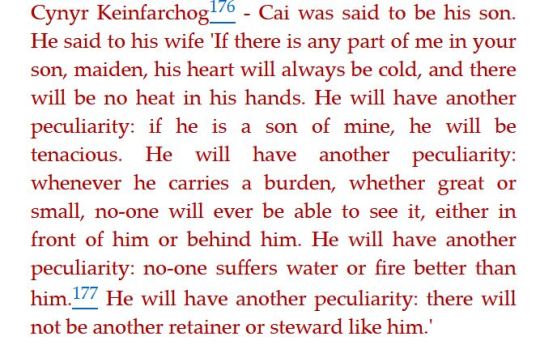

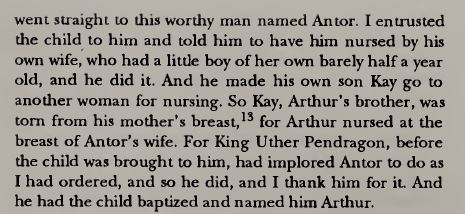


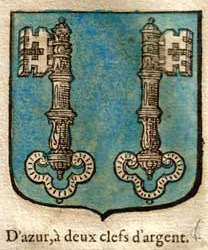
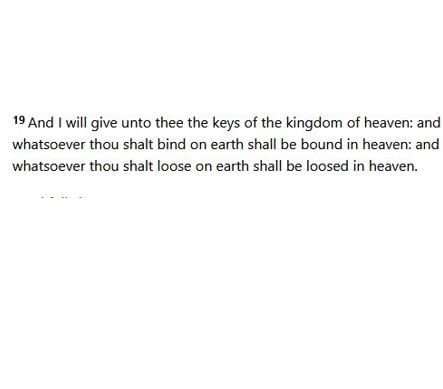


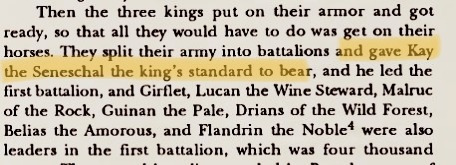








for @queer-ragnelle May Day Parade. May 17-21: Grumpy Month of Kay {Seneschal Celebration}
I have been here since before you became yourself: a collection of Kays (and Arthurs)
Chulhwch and Olwen / Camelot (2011) ep. 1 / Vulgate Cycle: The Story of Merlin / La Morte D'Arthur (Sir Thomas Malory) / The Once and Future King, book 1 The Sword in the Stone (TH White) / Sir Kay's coat of arms / Matthew 16:19 / Under cover of darkness (The Strokes) / Arthur of the Britons (1972) ep. 3 / Vulgate Cycle / Camelot (2011) / Icarus (The Crane Wives) / Idylls of the queen (Phyllis Ann Karr) / Hey Brother (Aviicii) / The High History of the Holy Graal (aka Perlesvaus), trans. Sebastian Evans / Camelot (2011) / Alliterative Morte Arthure, trans. Richard Scott-Robinson / Icarus (The Crane Wives)
#may day parade#arthuriana#sir kay#mine#i'm obsessed with arthuriana brothers you don't know how much#anyways here it is!!! I know st peter kay parallelisms something something but i can't articulate ok just read matthew 16 17-20#if i could make gifs i'd put one wih kay and arthur fighting dirty in arthur of the britons. instead you get a screencap!#also IGNORE the context of the perlesvaus like i did please and thank you (it's all st peter parallelisms until it starts being#judas parallelisms i guess but back to the thing ignore the contents of the perlesvaus for this post <3)#as an Estremely Tired eldest daughter who also works in administration for a living i feel kay the seneschal in my BONES
39 notes
·
View notes
Text
When was anyobody gonna tell me that Guinevere was the "Crowned Serpent of Logres"?
Well?
1 note
·
View note
Text
In Prose Merlin,Pendragon is crowned as rightful king by Ambrosius Aurelius. The Danes that Vortigern brought into the land rebel against him and the Christians. Pendragon in turn lays siege to Angier's Castle.

In the Vulgate, Pendragon is made King. The Saxons that Vortigern brought into the land fight him. And he lays siege to Hengist's Castle.

0 notes
Text
I keep seeing people accusing Merlin of advising Arthur to kill all the babies born around May of a certain year to try to kill Mordred and— y’all. I will be the first in line to call Merlin a horrible person who did reprehensible things, but for whatever reason, he drew the line at baby killing.
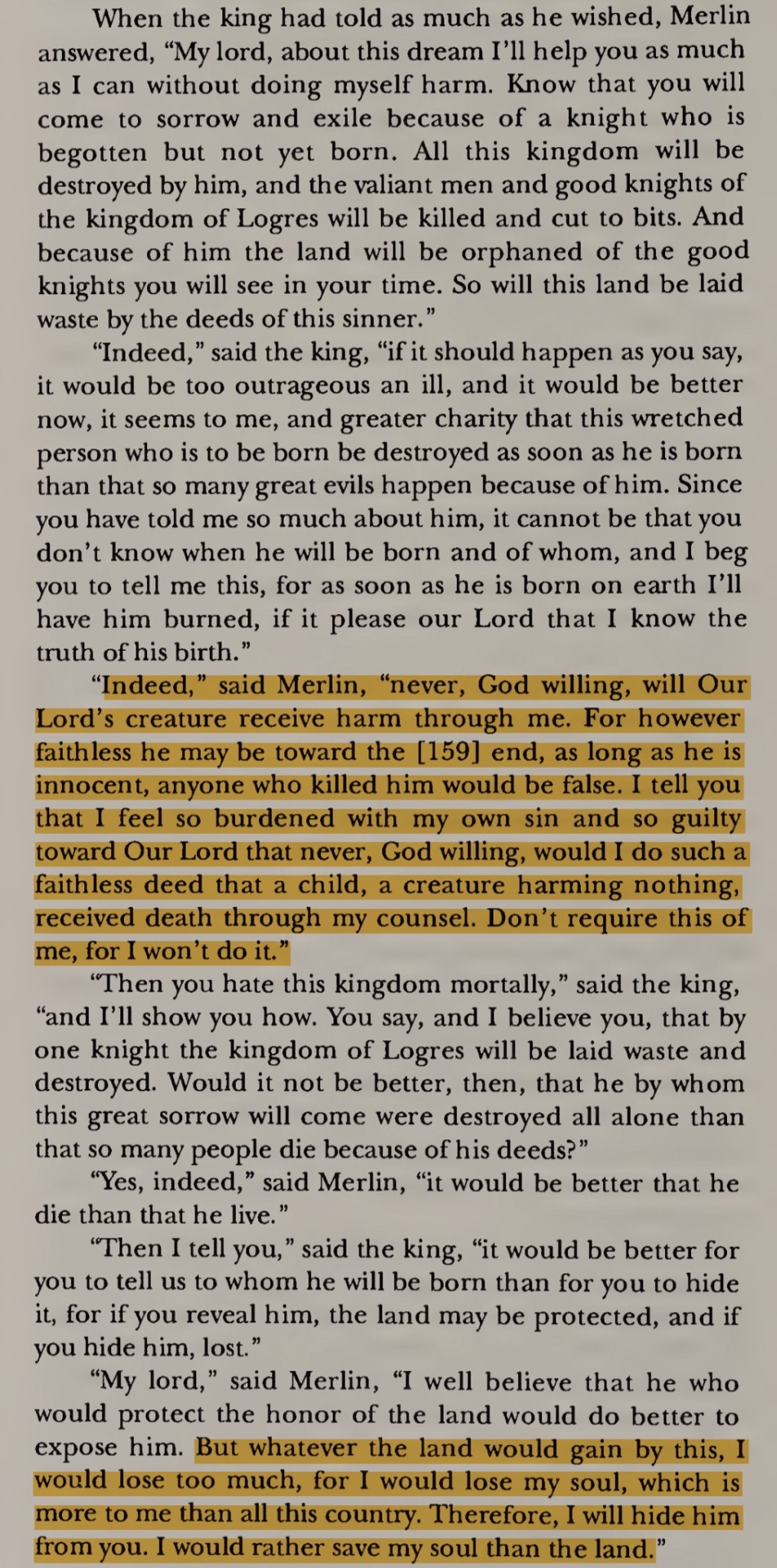
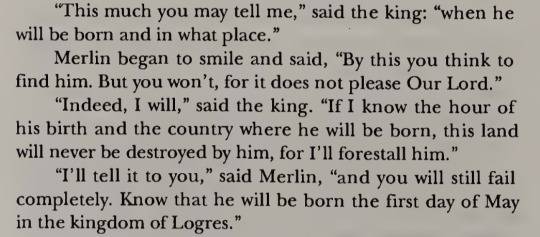
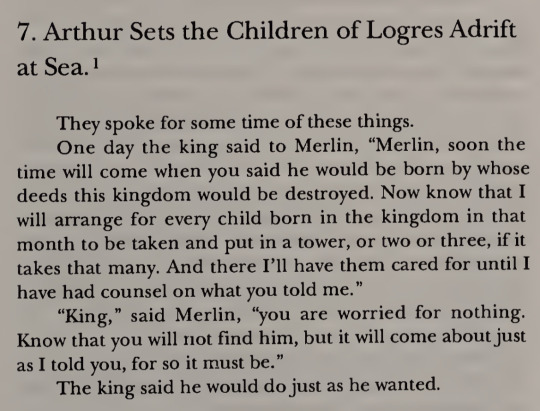
His immortal soul wasn’t going to be condemned for disguising Uther as Gorlois, or doing other Very Questionable Stuff around people’s wills and consent, or being a creep with Vivienne or Morgan… no, those are fine. 🙄 but killing infants. Can’t do it.
So the May Day Massacre was all Arthur. The wizard advised against it.
(I know, I know, Morte or some other later retelling probably says otherwise. I’m quoting Post-Vulgate, which as far as I know is the earliest version of the story. Had to. It was bugging me. >_>)
45 notes
·
View notes
Text
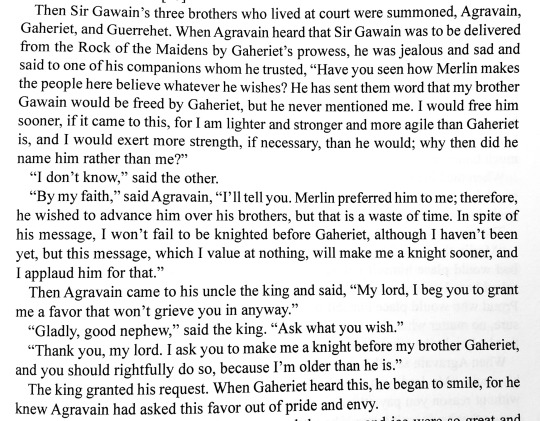
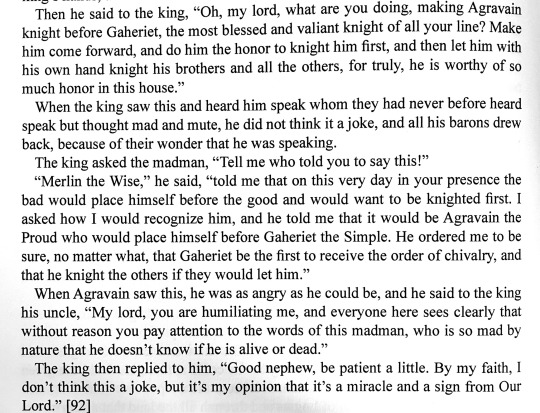
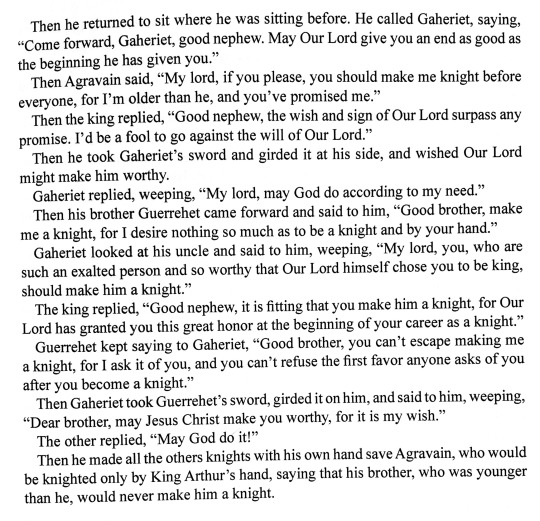
Never not thinking about this scene from the Post Vulgate. It doesn’t pay to be slightly more secular in King Arthur’s court, at least not while Merlin still lives.
Gaheris: 1
Agravaine: 0
10 notes
·
View notes
Text
Arthurian myth: Merlin (2)
A continuation of the loose translation of the "Merlin" article by Yves Vadé for the "Dictionnaire des Mythes Littéraires".
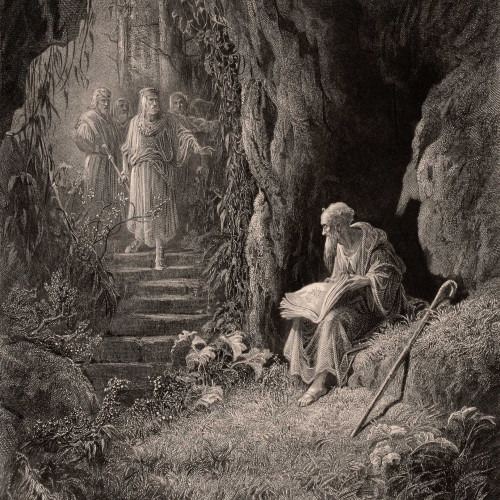
II/ Merlin in the Arthurian literature
As early as 1155, the Normand writer Wace transposed, for Alienor of Aquitaine, the “Historia Regum Britanniae” in French verse, in his “Roman de Brut”. He adds to the work the episode of the creation of the Round Table by Arthur, of whom Merlin will later become the prophet and the agent.
Merlin was barely mentioned by Chrétien de Troyes ; it is with Robert de Boron that he truly became the inspiration of the Grail’s knighthood. His work in verse, that contained at least the three romans known as “Joseph of Arimathea”, “Merlin” and “Perceval”, is partially lost in its original version, and it maybe even was unfinished. However, the prose translation of the “Merlin” was preserved, and seems to be quite faithful to Boron’s poem. The beginning of the roman takes back the motif of Merlin being born of an incubus demon, but it is now placed within a greater theological context: the demons wishes to produce an Antichrist, born of a virgin just like the Christ, in order to counter the Holy Incarnation. A demon managed, after some difficulties, to trick an honest young girl, but she immediately confessed her sin and she had the child baptized. From his father, the devil, Merlin received the knowledge of the entire past; and to counter this gift, God gave him the power to know the future. As such, Merlin is born with an universal knowledge. He uses it in the first months of his life to save his mother, threatened with burning at the stake ; then, at seven years old, he reveals to the usurper Vertigier the existence of the two dragons hidden under the foundations of his tower. He also reveals their meaning: the red dragon (Vertigier) will be killed by the white dragon (the young princes Pendragon and Uter, sons of the king Constant). Uter became king, and Merlin his advisor. He allows him to vanquish the Saxon during the battle of Salisbury, battle where Pendragon loses his life: Merlin had Stonehenge built in his memory, and Uter ruled under the name of Uterpendragon. A new element that would change the Merlin legend forever: it is through the idea and advice of Merlin that Uterpendragon has the Table of the Grail built, the “third table” after the one of Joseph of Arimathea, which itself was a copy of the table of the Last Supper. And, just like within Geoffroy’s work, it is thanks to Merlin that Uter can give birth to Arthur by uniting himself with the duchess Ygerne, that he marries soon after. Merlin raises Arthur in secret then he ensures his crowning and his rule. Merlin will keep assisting Arthur, so that both his kingdom and Christianity could prosper.
Visibly inspired by, if not written by, Robert de Boron, the “Perceval” of the Modène and Didot manuscripts give to Merlin a peaceful end, though an enigmatic one… After guiding Perceval through his quest, he announces the end of the enchantments within the Grail Castle. Once it is done, Merlin builds himself a home in the woods called “esplumeor” (a word with an unknown meaning). There, he escapes from both the flow of time and the sight of men, but he keeps making prophecies about what God asked him to reveal to humanity.
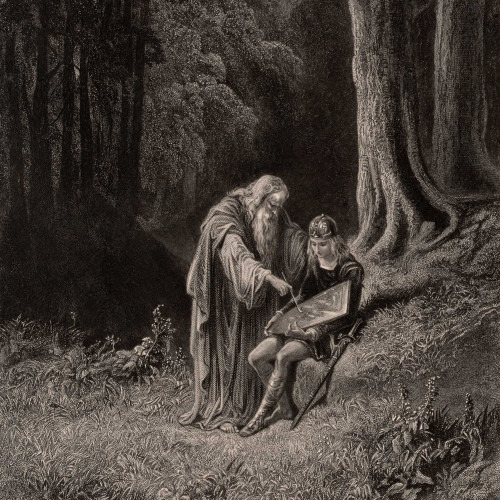
During the first half of the 13th century, two prose cycles formed themselves in France, each continuing Merlin’s story in a different way.
1) In the “Suite-Vulgate”, included within the greater cycle of the “Lancelot-Graal” or “Vulgate” (1215-1230), Merlin is the military advisor and strategist of Arthur in his battles against the barons that refuse his authority, then in his war against the Saxon, and finally in his feud against the emperor of Rome. Through Merlin, Arthur manages to marry Guenièvre, daughter of the king Laodegan, and he becomes the ruler in charge of the Round Table. But more importantly, it is here that Merlin encounters Viviane, the daughter of a lord named Dionas, at the edge of a fountain in the forest of Brocéliande. Wrapped around the tales of battles is a love story, during which Merlin allows Viviane to take away from him his magical knowledge. In order to keep Merlin all for herself, Viviane ends up capturing him within a “prison of air”, from where the prophet, now invisible, can still make his voice heard.
2) In the “Suite-Huth”, part of a cycle that was wrongly attributed to Robert de Boron, Merlin predicts the birth of Mordret, and the disasters caused by Balaain, the knight with two swords. It is Balaain that shall strike the “harmful blow” that will wound the king Pellehan and turn his kingdom in the “Terre Gaste”. Merlin is here much more involved in the adventures of the wandering knights than before. His role as an enchanter is put forward, as he is depicted commanding the wind, making the depiction of a dragon spit fire, open by magic the doors of a city, and preparing an enchanted bed that will remove from those that sleep within it their memory and their senses. The tale ends by the unfortunate love of Merlin and Viviane, which is a repetition of the love between Diana and Faunus. After bewitching Merlin, Viviane throws him into a vault whose stone cannot be removed. In his grave, Merlin screams one last time – and this last cry of the enchanter becomes the subject of an independent tale known as the “Conte du Brait”.
The first mention of Viviane is older than the “Suite-Vulgate”. She appears in the beginning of the “Lancelot” (or “Proper Lancelot”), under the name of Niniène, and she is depicted as a fairy of Bretagne that raised Lancelot in her wealthy domain hidden under a lake. Merlin appears here under a negative light. While his popularity is attested (it is said he was “so dreaded and so honored” by the people of Britany that all called him a “holy prophet” and common folks even called him a “god”), he is said to be “disloyal” and “deceiving” due to the nature of his father, and his knowledge is one of “perverse science”. The lady of the lake refuses his love out of wisdom, and she manages to trap him in “a cave within the dangerous forest of Darnantes”.
As such the character, that Robert de Boron tried to turn into the prophet of Christian knighthood, does not escape the ambiguity due to his composite origins, and which fits his genealogy, half-devil half-virgin. One can also see in his gift of shapeshifting a manifestation of his unstable personality, and of the contradiction of the several traits that compose him. This Proteus-like nature, certainly a remnant of the powers that were once attributed to the druids, allows Merlin to appear sometimes as a young man, sometimes as an old man, other times as a “woods-man/wild man”, and even as a great “branched stag”, as in the story of Grisandole (part of the “Suite-Vulgate”).
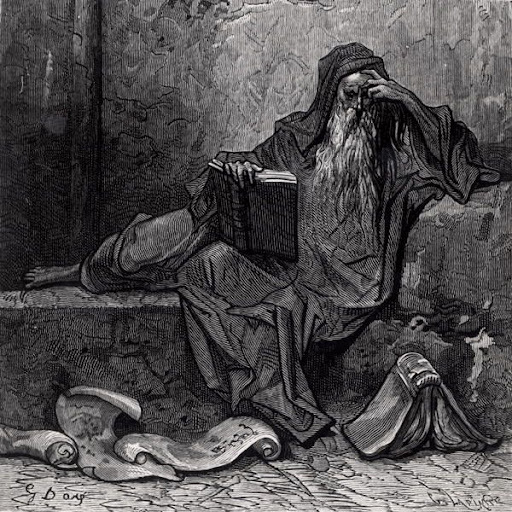
Built of successive additions, the tale of Merlin was reproduced, synthetized and translated, partially or entirely, by all the literatures of Europe until the end of the Middle-Ages. Even before 1250, the “Merlin” of Robert had been translated in the provençal language. The character also appears within numerous French verse romans of the 13th century: in “Fergus” (which places his lair in an isolated mountain), within “Le Chevalier aux Deux Epées”, within the “Roman du Hem”, within “Escanor”, within the “Roman de Silence” (where the Grisandole tale is found), and especially within “Claris et Laris”, which explains Merlin’s solitude by a crime he needs to expiate until his death. In the Prose Tristan (after 1240, Merlin takes care of Tristan, whose mother recently died, and gives him to a preceptor (just like he had done for Arthur in Robert de Boron’s text). Identified as a wizard, he builds a magical boat, the “nef de la joie”, for the king of Northomberlande. Outside of the knight-tales, a fairytale in verse of the beginning of the 12th century, “Du villain qui devient riche et puis pauvre”, also known as the “Dit de Merlin-merlot”, confirms the role among the “folk people” of Merlin as an embodiment of the supernatural.
The one that Dante called the “buon incantatore” was very popular in Italy, especially in relation to the work of Joachim of Flore. Among his apocryphal works there is an “Expositio Sibyllae et Merlini”. The tradition of Merlin as a prophet was enriched by a huge book of “Prophecies”, which mixed political predictions, sermons, and fictional stories. It was written in French between 1276 and 1279 by Venetian, probably a Franciscan. In the beginning of the 14th century, the Florentine Paolino Pieri mixed in his “Storia di Merlini” a tale of Merlin’s youth and the Italian translation of a part of the “Prophecies”. In 1480, Venice saw published six volumes of the “Historia di Merlino”, a great part also made of these prophecies supposedly made by Merlin.
In England, the “Merlin” of Robert and the “Suite-Vulgate” were recapped in a verse work known as “Arthour and Merlin” (1250-1300). Henri Lovelich gave an alternate version of this text in his “Merlin” (1430). A translation in Middle-English of the “Merlin-Vulgate” dates from the middle of the 15th century. Finally, sir Thomas Malory split the “Merlin” of Robert throughout the five first books of his “Morte d’Arthur”. This work, written in the prison of Newgate where Malory spent the last twenty years of his life, was printed in 1485 and constantly republished, and it ensured the fame of Arthur and Merlin within English-speaking countries.
In Germany, “Merlin und Seifrid de Ardemont”, by Albrecht von Scharfenberg (13th century) recaps Robert’s Merlin, with very important modifications (for example Pandragon and Uter are now the sons of Merlin). Other translations appeared in Holland. In Spain, the cycle of the pseudo-Robert de Boron was translated in the 14th century by the brother Juan Vivas, while the “Demanda del Sancto Grial” included a “Baladro del sabio Merlin”, derived from the lost “Brait de Merlin”. A Castilian version appeared at Burgos in 1498, and then another was published in Seville in 1535.
#merlin#merlin the enchanter#arthuriana#arthurian myth#arthurian literature#arthurian legend#medieval literature
21 notes
·
View notes